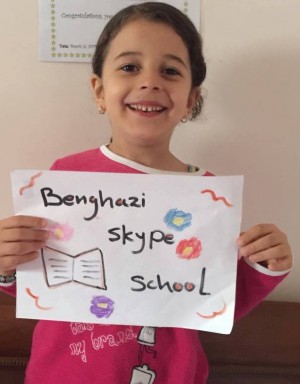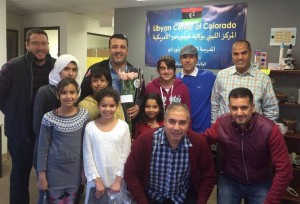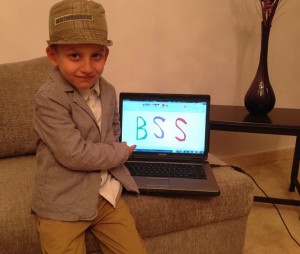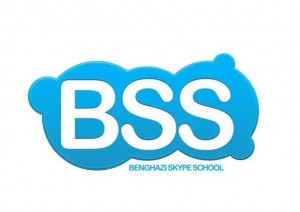By Libya Herald staff.

Cairo, 24 November 2014:
Responding to the needs of students in Benghazi who are missing their school year due . . .[restrict]to the armed clashes that have been taking place since May, an enterprising group of Libyans has started Benghazi Skype School.
After first coming up with the idea, Haifa El Zahawi posted a message on Facebook asking friends for support.
“We received a huge number of messages from Libyan people willing to help,” Zahawi told the Libya Herald.
Zahawi has a team of seven helping her administer the programme, working, she said, 24 hours a day. Zahawi lives in New York City, with a 7-hour time difference from Benghazi. She spoke to the Libya Herald at 3:45 am her time, while she simultaneously monitoring one of the Skype classes.
Libyan expats around the world have volunteered to help with English classes. The programme is receiving help from the teachers of the Libyan School of Colorado, located in Denver. Other teachers are within Libya.

“We also have some university professors who are willing to give their university lectures via Skype as well,” said Zahawi.
The classes, which began three days ago, are currently being offered for each level of primary school. Teachers use the Libyan curriculum and supplement it with some of their own material. A timetable of classes is posted each week. This week, according to the school’s social media page, the students are being offered science, religion, math and English lessons.
The team running the programme hopes to increase the number of classes as more teachers volunteer. They also hope to be able to offer secondary school classes.
Besides meeting for online class via Skype, the students also have access to videos recorded by the teachers and posted on YouTube.
“Some of the students have problems with the internet connection and cannot participate during the online Skype session,” said Zahawi. “The teachers take screen shots during the actual lesson time and email those to the students. Students are also able to access the youtube videos on their own time,” she added.
The school was originally planned for the students in Benghazi, but, according to Zahawi, they have students participating from other Libyan towns and even from the US and Canada.
“We are open for anyone who wants to learn,” Zahawi proclaimed.
Besides addressing educational needs, the team is also attempting to address the emotional needs of the students. They are working with mothers, giving them tips about dealing with the effects of war on children.
The number of students is small right now, but news of the school is spreading quickly by word of mouth and social media, meaning new students are signing up daily. Those who are attending seem excited for the opportunity. The school’s social media site is filled with pictures of children who are sending in photos of themselves and their schoolwork.

“It’s a hard time for Libya and especially Benghazi,” said Zahawi, “but we will survive. We are fighting by learning.”
Parents wishing to enroll their students can send an email to [email protected].






